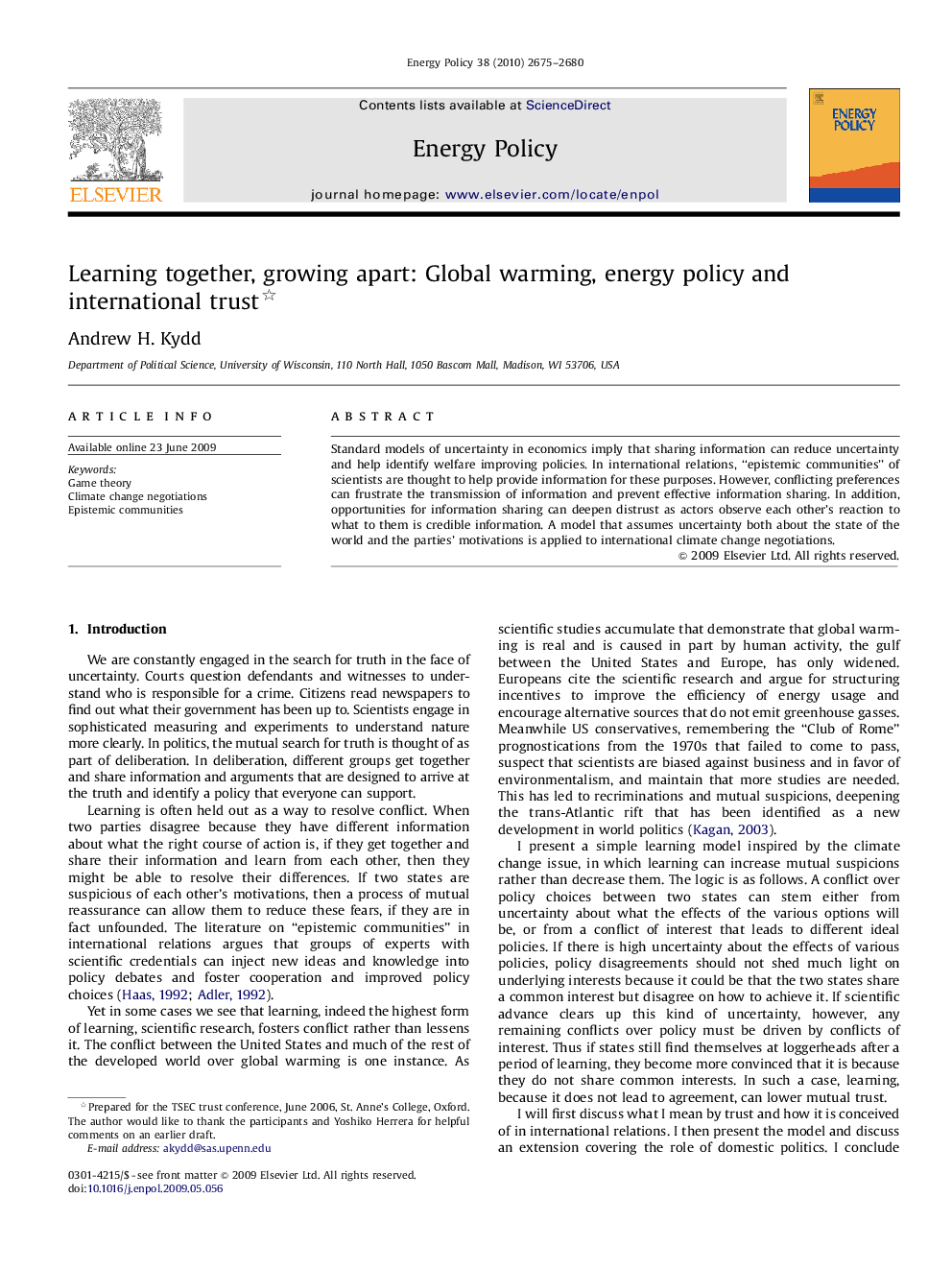| Article ID | Journal | Published Year | Pages | File Type |
|---|---|---|---|---|
| 996528 | Energy Policy | 2010 | 6 Pages |
Abstract
Standard models of uncertainty in economics imply that sharing information can reduce uncertainty and help identify welfare improving policies. In international relations, “epistemic communities” of scientists are thought to help provide information for these purposes. However, conflicting preferences can frustrate the transmission of information and prevent effective information sharing. In addition, opportunities for information sharing can deepen distrust as actors observe each other's reaction to what to them is credible information. A model that assumes uncertainty both about the state of the world and the parties’ motivations is applied to international climate change negotiations.
Related Topics
Physical Sciences and Engineering
Energy
Energy Engineering and Power Technology
Authors
Andrew H. Kydd,
